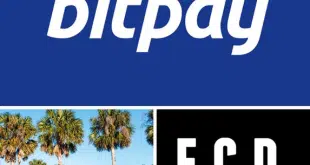Livewire International Inc., a York, Pa.-based software company with about 100 kiosks and other devices on its network selling items like ski-lift tickets, has teamed up with at least one ATM manufacturer and plans to make agreements with several more to sell tickets through ATMs in supermarkets and convenience stores. The company's goal is to have about 1,000 such outlets on its network by late next year, says Charles J. Caserta, president of the 6-year-old company. The shift to ATMs is a major strategic move for Livewire, which currently drives about 100 kiosks, handhelds, and manned countertop machines. But Caserta says the company is drawn to ATMs because they are now so numerous they represent a huge untapped distribution network. “ATMs are ubiquitous,” he says. “If we could marry that sales distribution with our content, it's a marriage made in heaven.” Adding to the opportunity, Caserta says, is the increasing share of installed ATMs running Microsoft Corp.'s Windows operating system, which is the program Livewire runs on. “It cuts down on our development” time, he says, if Livewire can drive browser-based machines. Livewire began contacting ATM makers early this year, and found its first partner in Fremont, Calif.-based Tranax Technologies Inc., which later this year will begin shipping a new machine that combines a traditional ATM with kiosk-like functions, including check-imaging and ticketing (Digital Transactions News, Sept. 21). But Caserta says he will also try to make deals with other makers, including Diebold, NCR, and Wincor Nixdorf, that are shipping machines with Windows XP. Livewire makes the deals with the amusement and water parks, ski lodges, and other resort destinations selling high-end tickets and supplies the media to the machines, which in most cases are situated in stores near the venues. Each machine links to Livewire's data center, which switches card transactions out to processors for payment and monitors each device to detect the need to replenish them or fix problems. Typically, the venue will let Livewire sell tickets at a 10% discount, with Livewire pocketing a commission on each sale of 5% to 10%, some of which it shares with the retailer. If the retailer's machine is under contract with an independent sales organization, Livewire splits with the ISO, leaving any compensation to the merchant up to the ISO. The split is generally 60% for Livewire if Livewire owns the machine, and 40% if it doesn't, Caserta says. Caserta's strategy is to focus on supermarkets and convenience stores, particularly those situated near resorts and parks. He plans also to target stores whose ISO contracts are expiring, hoping to work with the ISO to install new machines, such as the one from Tranax, that will operate on Livewire's network. But he's not putting all his eggs in the ticketing basket. Livewire also dispenses media such as prepaid cards. And it's currently launching a system in Las Vegas that allows cab drivers to take vouchers for taxi fares. The vouchers are dispensed from machines located at the airport and in major hotels. Customers use credit or signature-debit cards at the machines to pay for the vouchers, which the drivers later redeem at the dispatch office or at an ATM with a card linked to each driver's account. Beyond Las Vegas, Livewire has deals with taxi operators in Boston, New York, and Salt Lake City for the system.
Check Also
How Business Groups Are Pushing for Stablecoin Acceptance
A leading merchant association and a group representing stablecoin interests early Thursday threw their weight …





